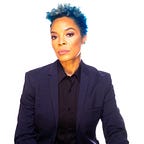Get Close
In the weeks since the election of Donald Trump, the news and social media have been ablaze with anxiety as reports spread of an increase in hate crimes and harassment against Muslims, immigrants, and African Americans. The Southern Poverty Law Center has cataloged these incidents; in the 10 days since the election, there have been over 700 incidents. The largest number of these — over 150 of them — have been reported at K-12 schools(1). Donald Trump himself has spoken out in reference to the acts, saying in a 60 Minutes interview on Sunday night, “And I say, ‘Stop it.’ If it — if it helps, I will say this, and I will say right to the cameras: ‘Stop it.(2)’”
AS MORE AND MORE REPORTS OF DISCRIMINATORY INCIDENTS ARE MADE PUBLIC, MANY HAVE CLEARLY VOICED THEIR DISGUST AND HORROR — AND THEY SHOULD!
Swastikas, racial slurs, and divisive threats unambiguously trade on exclusivism and xenophobia; voicing our protest is vital in reminding ourselves and the world that hatred, prejudice and bigotry are unacceptable in the life and narrative of our America.
THE OBVIOUS DANGER IN KEEPING SILENT IS THAT THESE INCIDENTS BECOME A NORMALIZED PART OF AMERICAN LIFE.
There is a parallel, and less conspicuous, danger, though, in getting too comfortable in our condemnation. Even in our appropriate anger and outrage at the violence of others, it’s easy to lose sight of the threat that our own, perhaps more subtle, biases present. It’s easy to lose track of our own agency, and the power that we each have to move our nation towards inclusiveness.
WHAT DO I MEAN?
Well, as many struggle to understand our new political paradigm, we do so from mostly homogeneous communities. We talk and analyze and work and live alongside people who, for the most part, are a lot like us. Studies have confirmed over and over again that, for all of our progress, there are still deeply structural racial, religious and class divides that dictate with whom we live our lives. But now, perhaps more than ever, that homogeneity could threaten the future of our nation as a place where people from all walks of life can find hope and community. Why? American historical, economic, and social tides push us into our separate communities. Yet, it’s impossible for us to acknowledge in meaningful ways — ways that promise to protect and care for others — the suffering and experience of others unless we actually see it. We can’t acknowledge the things that we can’t see. In other words, it’s great to value diversity, but that value gains consequence only when we actually live our lives in ways that embody diversity.
IN HIS RECENT BOOK, A JUST MERCY, NOTED DEATH ROW ATTORNEY BRYAN STEVENSON DESCRIBES THE POWER OF PROXIMITY IN THE PROMPTING OF POSITIVE CHANGE IN THE WORLD.
He tells the story of his grandmother, who advised him throughout his life to “get close.” “You can’t understand most of the important things from a distance, Bryan. You have to get close.”
GETTING CLOSE TO THOSE WHO ARE “OTHER” FROM US TRANSFORMS “ISSUES” OF JUSTICE TO REAL STORIES AND REAL RELATIONSHIPS AND DEMANDS THAT WE WELCOME OTHER PERSPECTIVES.
And yes, in your individual life, you have a lot power to change the world just by moving closer to those who are different from you. Russian novelist Alexander Solzhenitsyn famously said, “If you want to change the world, who do you begin with, yourself or others? I believe if we begin with ourselves and do the things that we need to do and become the best person we can be, we have a much better chance of changing the world for the better.” In other words, if you want a more tolerant, kinder, more diverse world, begin with your own relationships.
IN OUR BOOK, OVERCOMING BIAS: BUILDING AUTHENTIC RELATIONSHIPS ACROSS DIFFERENCES, I AND MY CO-AUTHOR, MATTHEW FREEMAN, TAKE THE VALUE OF DIVERSITY OUT OF THE REALM OF IDEALS AND INTO THE WORLD WITH PRACTICES THAT ENCOURAGE US TO UNCOVER AND BEGIN TO CHECK OUR UNCONSCIOUS BIASES.
For example, we share an activity we call the “Cultural Inventory.” How much exposure do you actually have to people who are different from you? Our activity will help you think through your favorite online publications, T.V. shows, music choices, restaurant preferences — do the folks who create in these arenas reflect your religious preference, sexual orientation, or political leanings? Another activity we share — the “Listening Lunch” — will work to help you grow in relational fluency with those who think, live, or vote differently from you. Bringing our own biases into the light, with an honest desire to change those biases that harm, dethrones them. They lose their power when we work to change them. When we not only speak out against bigotry and exclusivism, but we work hard to “get close” to those who are different from us, transformation in the world is possible.
Originally published December 1, 2016 on TMIConsultingInc.com
1 https://www.splcenter.org/hatewatch/2016/11/18/update-incidents-hateful-harassment-election-day-now-number-701
2 http://www.cnn.com/2016/11/13/politics/donald-trump-60-minutes-first-interview/
Dr. Tiffany Jana (they/them) is the author of four books published by Berrett-Koehler Publishers. Overcoming Bias: Building Authentic Relationships across Differences is available everywhere books are sold. You can also earn 3 SHRM CEU credits for reading it.
Erasing Institutional Bias: How to Create Systemic Change for Organizational Inclusion is available everywhere books are sold. You can also earn 3 SHRM CEU credits for reading it.
The IPPY Award winning second edition of The B Corp Handbook is available everywhere books are sold.
2020 Terry McAdam Book Award and getAbstract Reader’s Choice International Book of the Year Subtle Acts of Exclusion: How to Understand, Identify, and Stop Microaggressions is available everywhere books are sold. You can also earn 3 SHRM CEU credits for reading it.
Here’s a link to five of my books and other fun things I’m up to.
